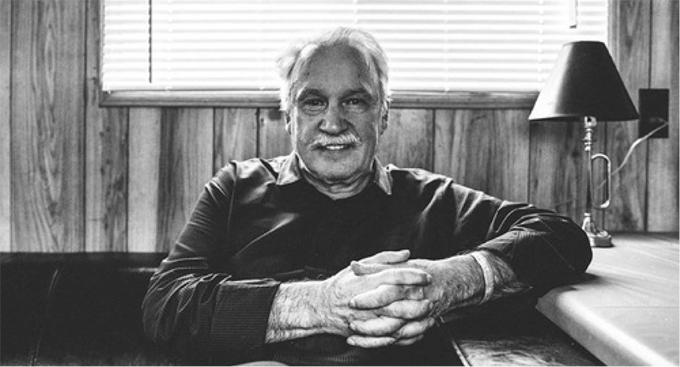
Synth pioneer. Disco architect. Film composer. Giorgio Moroder has had an undeniably heavy if cloaked hand in popular music since the ’70s when he helped Donna Summer craft “Love To Love You Baby.” Since then, he’s composed music for films like Scarface and Top Gun, worked with a silly number of pop artists, and more recently was given his own theme song, “Giorgio by Moroder,” on Daft Punk’s global smash record of last year, Random Access Memories. During the past four decades he’s inspired countless artists to incorporate rich synthesizers, complex string arrangements, propulsive drum patterns, and a jazzy ear for melody into everyday popular music. Put another way, dance music and popular music in general would hardly exist in their current states without Giorgio Moroder’s influence.
We sat down with Giorgio recently to chat about his first new tune in two decades, what remixing Coldplay is like, and why, at 74, he’s still got plenty of music to make.
Interview by Clay Bassford
Hey Giorgio, how’s it going? You just released “Giorgio’s Theme” with Adult Swim, and it’s the first in two decades. Why did you decide to release a song now?
Well, actually that was not supposed to be a single. No, this was a request about a year or more ago of a friend of mine, and I thought it was only for the show, I didn’t believe they would release it as a single. It was one of the nine or 10 [songs for the show], so it was never intended as, “This is my next single.” If I knew that, then I would not have done it, because the first single I would do after 20 years should be a big one.
Do you think it’s possible you might release something as an original work at some point?
Yeah, I’m preparing for an album, talking to several different people, and nothing is set but I think it’s going to be a good one. I have time enough to do it. Then let’s hope they say, “This is my first single! The other one was just a good demo.” [Laughs.]
How did you like Moogfest in Asheville this spring?
Moogfest…it was nice. The guy before me, Mix Master—
Mix Master Mike, from the Beastie Boys. He’s great.
Gah! He must’ve played four or five hundred pieces, and I asked him, “How do you remember?” He says, “I remember every song. You play me five seconds and I’ll tell you exactly what, when, how.” Then I saw him leaving with about three bags full of vinyls. I thought, “God! I have to DJ after him!”
Do you think you’ll utilize some of the current technology that’s available, or will it be more purely analog?
The technology, digital, and all of that, I started years ago with digital, but you know, I’m using the best musicians I can find. I do my demos, good demos to hear the melody and the chords and the progressions, but I would not be able to finish a product, because especially in today’s world you have to know every sound. A kick which is good today in six months is out.
Are you familiar with the Singularity Theory, where man and machine are destined to merge and transform the world as we know it?
A little bit. In fact, two good friends of mine, Roland Emmerich and Harald Kloser, who are doing a movie called Singularity— from Kurzweil, right? It’s a little bit on hold right now because there was a similar movie that came out this year, which flopped terribly—what’s his name? The guy from The Pirates…
Johnny Depp?
Johnny Depp. The last movie of Johnny Depp. That was very similar to the Singularity. I know a little bit.
Are you interested in what might happen in terms of the musician's perspective? Music technology has evolved so much in even the past 10 years. Is there a way that we may be able to use technology in ways we haven’t thought possible before?
Well, I think soon you may say, “OK, give me the four chords in certain sequence, give me the bass in another,” and I think you could have a computer to compose not only a song but a whole piece. And with the vocoders and the computers who talk, and you know I forgot the name of it, but that little creature in Japan, she’s a cartoon and she sings and she’s like alive. So people go to see her in the concert and she doesn’t exist!
It’s like a hologram?
I don’t know if it’s a hologram or 3D, but it’s like an artist, the computer is the artist. She’s beautifully designed and I think she interacts with the audience too.
